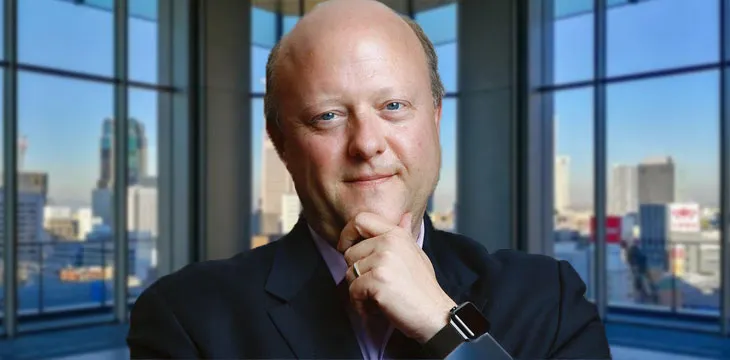|
Getting your Trinity Audio player ready...
|
Cryptocurrency wallet service and investment startup Circle has announced it is seeking a U.S. banking license, at the same time as the firm is looking to register with the U.S. Securities and Exchange Commission (SEC).
Executives with the firm, which was founded in 2013, told Bloomberg Circle was looking to register as a brokerage and a trading platform, requiring approval from the SEC, as well as obtaining federal approval to run banking activities.
It becomes the latest major firm in the cryptocurrency space to actively seek out regulation, despite remaining legal uncertainties around cryptocurrency services and which should, and should not, be subject to regulatory oversight.
Backed by Goldman Sachs, the firm would be able to offer trading in cryptocurrencies deemed to be securities in the U.S., as well as avoiding the need to register in each state individually. According to the firm’s chief compliance officer, Robert Bench, this would mean being “able to have a single conversation…it’s hard to have 50 conversations.”
Circle is already working with the SEC, the Financial Industry Regulatory Authority, and the Office of the Comptroller of the Currency, ahead of its application for a banking license.
According to the firm’s CEO, Jeremy Allaire, a banking license would enable Circle to operate more efficiently, by interacting with other institutions directly.
“To hold reserves with the Federal Reserve… to directly settle with other banks in other markets around the world through those networks – that can improve the efficiency of what we deliver, it can reduce the costs,” Allaire told the news outlet.
Allaire went on to volunteer Circle’s journey as a “great guinea pig” for others in future, as Wall Street institutions move ever closer to fully embracing cryptocurrencies. The move tallies with Circle’s ambition of supporting a wider range of digital assets, beyond cryptocurrency, in future.
“I think what we would be comfortable saying is that digital assets—which are not just digital currencies, but a broader range of assets—it’s an area that has grown a lot, but that’s not easily accessible to mainstream investors,” Allaire said.
The developments follow Circle’s recent acquisition of Poloniex earlier this year, in which the firm paid in excess of $400 million as part of the deal. After closing its latest $110 million funding round in May, the move towards licensing could well help Circle achieve its ambitions.

 06-30-2025
06-30-2025 





